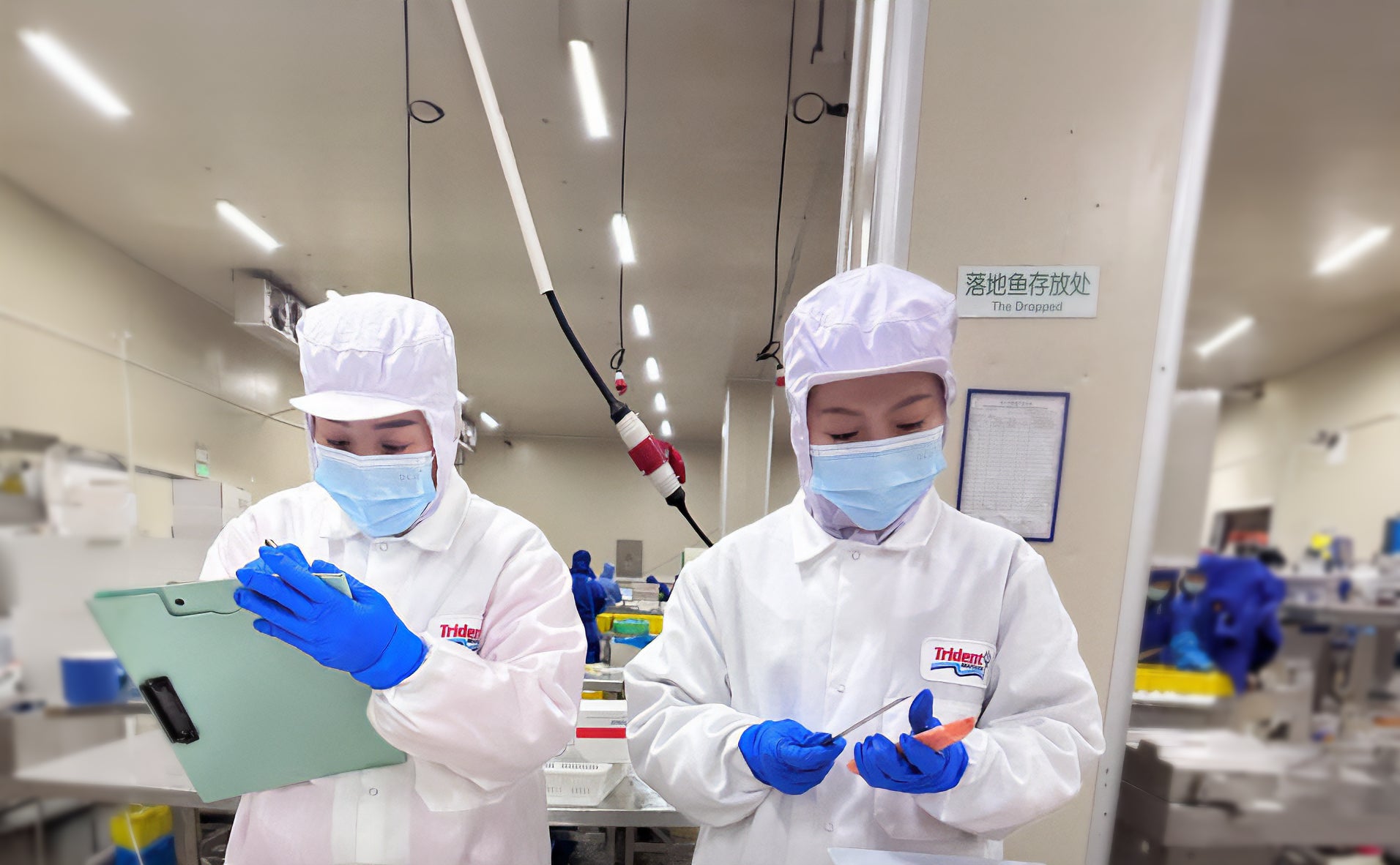The following op-ed was authored by Joe Bundrant, CEO of Trident Seafoods. It originally appeared in IntraFish.
Earlier this week, The New Yorker published an in-depth report highlighting human rights abuses in the Chinese seafood sector. The report reveals what is essentially an open secret in some parts of the world, exposing the heartbreaking and inhumane treatment suffered by Uyghur and other workers in seafood processing plants throughout China.
Shockwaves from the article were quick to reverberate throughout industry, and around the globe. And rightfully so. Forced labor, inhumane working conditions, and “semi-military-style management” at certain factories and on vessels around China are just a few of the accusations uncovered by the article’s author, Ian Urbina.
As an industry, this is unacceptable. We must do better.
Make no mistake, I firmly believe that trust in the seafood marketplace can be assured, but only through due diligence and integrity throughout the supply chain. I believe seafood companies based in the United States and elsewhere can safely and successfully partner with suppliers in China. But to do so, those same companies are going to have to invest significant resources into developing their own Corporate Social Responsibility (CSR) programs and active engagement to hold suppliers accountable.
At Trident, we work with Chinese suppliers who meet international labor standards. Yes, we rely on third-party audits, but as the New Yorker article highlights, third-party audits alone aren’t enough to ensure compliance. So, we’ve invested significant resources into a CSR program that affords us the ability to conduct our own on-the-ground audits across our supply chain and manage the risk of corruption in the audit process.
For the past 20 years, Trident has operated in China with a comprehensive FSQA program and an experienced production leadership team. Seven years ago, we expanded the program, and now have a full-time, on-site CSR presence in China, through which we’re able to conduct social audits and offer training and guidance to companies and processing workers alike.
The vast majority of Trident’s seafood is caught in Alaska and processed in the U.S., Japan, and Europe, and we do some intermediary processing in China. Through our CSR program, if we find that a company chooses not to partner in improvements to meet and maintain Trident’s supplier code of conduct or allow egregious labor practices, the answer is simple: We refuse to do business with them.
Investing substantial resources and conducting on-the-ground audits across supply chains is standard practice in other industries that rely on foreign manufacturing and processing. It should be standard practice in the seafood industry as well.
There is another significant dimension to this story that was outside the scope of the report in The New Yorker: a large amount of the seafood that the United States imports from China is made from fish that are harvested in Russia. We need to worry not only about labor conditions in Chinese processing plants but also about where their raw material comes from.
In 2022, as part of its commitment to holding Russia accountable for its continued aggression in Ukraine, the Biden administration released an Executive Order banning the imports of fish, seafood, and other products from Russia. The objective of the U.S., European, and other ally governments is to isolate the Russian economy.
Unfortunately, Russian seafood harvesters have been able to circumvent the ban in our sector by shifting their processing to other countries, including China. Processed in China, the Russian fish then flows into the U.S. and Europe, tariff-free. The result is fueling Russia’s war and inhumane working conditions in China while also forcing responsible seafood producers to compete globally against a freefall in Russian seafood pricing. Meanwhile, U.S. seafood has been completely banned from Russia since 2014, and seafood exports to China have been subject to a 25% retaliatory tariff since 2018.
This unfair trade advantage, combined with so little transparency that consumers can’t discern Alaskan from Russian-harvested seafood, puts U.S. seafood producers at a huge disadvantage in US and international markets, compounding already daunting challenges to the long-term competitiveness and viability of U.S. seafood production. While U.S. seafood producers stand behind the strong conservation and management measures in our waters and providing good, living wage jobs, and rebuilding our fleets in American shipyards, this investment cannot be sustained when competing against fisheries with no oversight and supply chains with forced labor.
Without more support from the U.S. federal government to help address unfair trade, modernize our supply chains, and reinvest in our communities, every link in our seafood supply chain – from independent fishermen to distributors – faces an uncertain future.
So, what can we do? Trident and other U.S. seafood producers have made and continue to make the investments needed to ensure our customers receive sustainable and responsibly produced products. As The New Yorker article highlights, the entire industry needs to step up to a uniform standard of supply chain integrity.
However, being the most sustainable and responsible seafood producers in the world will mean little if we can’t stay in business. We need the U.S. government and the European Union Commission to step up and help ensure that we are competing on a level playing field.
Only then will we be able to make the long-term investments needed to strengthen and secure the U.S. seafood supply chain, healthy ecosystems, and safe and humane working conditions around the world.
View original story on Intrafish.
